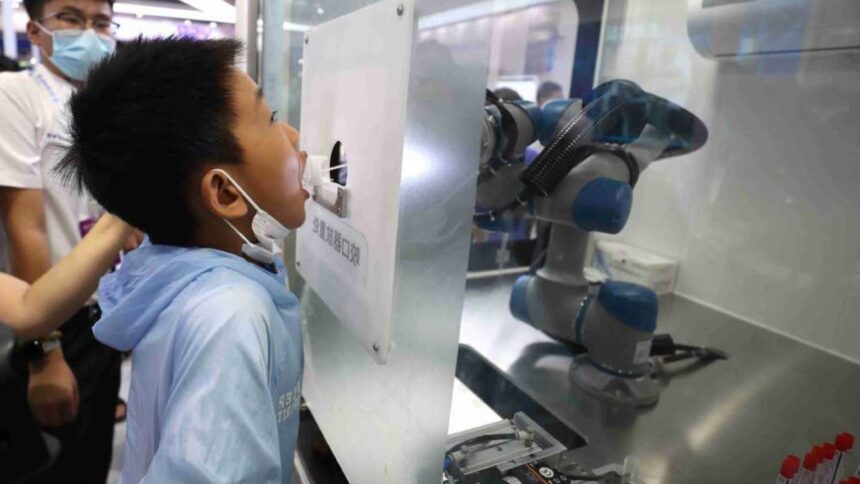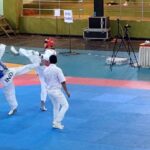Chinese companies and universities are developing new AI-driven robots for the COVID-19 test, which would reduce workload by replacing travel clerks with the automation of paperwork.
With this announcement, the government plans to increase investment focus on sectors number one with significant possibilities, including healthcare. The Ministry of Information and Technology released a five-year plan for robotics called the Investment Promotion Strategy for Robotics Industries.
Research has been done to develop a COVID-19 testing robot that can process these tests with unprecedented speed and efficiency. Officials at Tsinghua University and Biotech Corp, which is based in Wuxi, Jiangsu Province, made this announcement.
A machine that looks like a vending machine can now collect samples, process them and generate results in 45 minutes without any human interaction. With AI, machines can take over laboratory processes.
The machine has a polymerase chain reaction, or PCR, machine in it. Samples can come from up to 960 people at once rather than robots.
With machine learning and lots of processing power, the robot can contain multiple modules for analysis. Extracting data, purifying it with image recognition, finding patterns, and identifying those patterns over a long period.
A PCR machine produced by Biotech has already been approved as a Class-III domestic medical device. In China, Class-III domestic medical devices undergo strict regulation from the national medical product regulator for approval and registration.
Reducing Workload
The robot is also under review by the top medical product regulator for a Class-III license.
In the next generation of robots under development, we aim to shorten the whole process from 45 minutes to 30 minutes. The robot is expected to be unveiled in a few months.
Robots that are adapted from industrial robotic arms that have limited mechanical movements might create an unpleasant experience for users, but this new machine has a more pliable robotic claw and is off duty by the time patients come in for oral samples.
Hospitals are experimenting with robots that can replace some of the work in difficult patient situations. The hospital in Beijing and another known as Nantong Center for Disease Control and Prevention in Jiangsu. China is employing these revolutionary robots.
China’s market volume for nucleic acid testing is expected to reach $2.1 billion in 2022, from $1.3 billion last year according to Shenzhen-based research company Askci Corp.
China is not the only leader in the artificial intelligence market. Siasun Robotics and Automation Co, one of China’s largest robotics companies, created a robot to collect oral swab samples. The samples are taken to a lab and analyzed.
The robots developed by Bioteke and Tsinghua University have received nearly $20 million in investment. The general manager of Bioteke, Zhou Zhu, says that the company is excited about its capabilities.
In the heat that currently roasts southern China and requires medical workers to wear heavy protective suits, robots could carry out any number of tedious tasks, such as testing throat swabs. Zhou mentioned this in their discussion with Quartz.
China can become at the forefront of machine intelligence by making it easier for companies and brands to buy robots.




